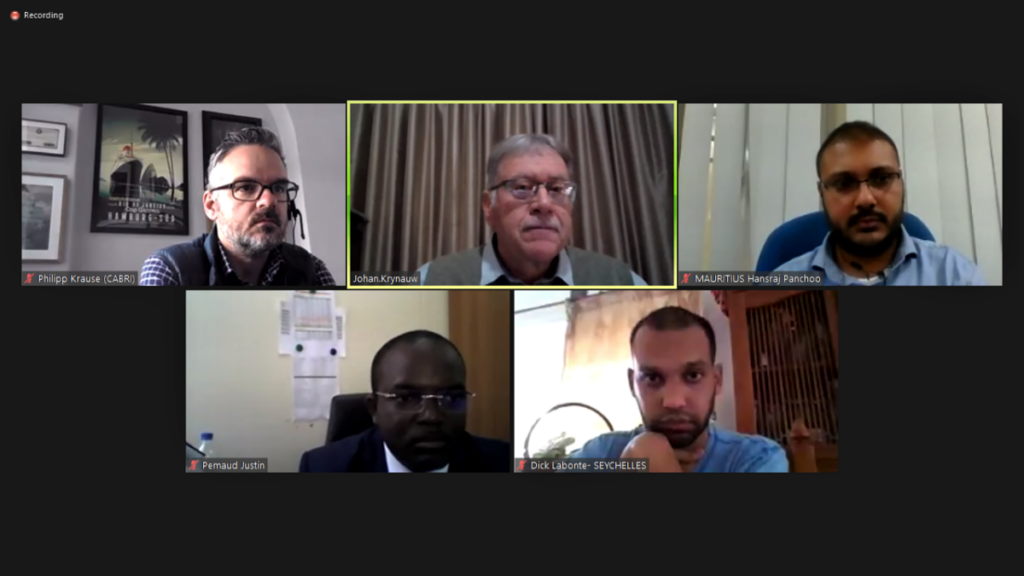
On June 7, 2021, the Collaborative Africa Budget Reform Initiative (CABRI) welcomed public debt managers of 20 countries in Africa to the third network engagement meeting with public debt managers in Africa. Subjected to many policy interventions in 2020, public debt managers in Africa are now facing huge debt overhangs and high annual borrowings requirements. Some countries have done well in stabilising debt issuances, others are still facing several challenges posed by higher debt levels.
Key takeaways from the discussions were:
1. African countries are facing different challenges with traditional and non-traditional partners regarding terms and conditions.
Although reporting and analytical capabilities regarding the management of financial terms of loan agreements are strong, countries often experience delays in infra-structure projects, caused by condition precedents (CPs) embedded in some of the financing agreements with traditional lenders.
Non-traditional lenders like Export Credit Agencies (ECAs), sometimes are not flexible enough, depending on the ECA, in terms of cost structures.
The aim of regular network engagements amongst public debt managers in Africa, is to establish a common voice to raise and address matters of common concern with creditors or investors.
2. Accessing international debt capital markets made more sense for some African countries as noted by speakers from Ghana, Côte D’Ivoire and Benin.
Cross default clauses in commercial loans and the smaller share of bilateral debt in public debt portfolios, meant that the international interventions like the G20 Debt Service Suspension Initiative (DSSI) were not considered favourably by many countries. Instead, the Government of Ghana (GoG) opted to create fiscal space by introducing revenue and expenditure measures and issuing more external debt. The lower external interest rate environment, which reduces the average weighted cost of borrowing, made issuing more external debt a sensible strategy.
Côte d’Ivoire was also in a strong position to issue Eurobonds due to stronger macroeconomic indicators, locally, as well as the groundwork they have done in terms of analysing the markets, maintaining credit ratings and a strong investor management programme, which had a positive impact on investor confidence.
Benin’s response to COVID-19 involved taking advantage of government reforms initiatives since 2016. This has led to the implementation of prudent debt management strategies and a more proactive approach in terms of consolidating debt levels, diversify funding instruments and mitigating the risks facing the debt portfolio. Their recent Eurobond issuance in 2021 was regarded as highly successful. New money with better conditions is critical.
3. Other countries like Nigeria emphasized the importance of developing local debt capital markets for funding needs and actively managing the public debt portfolio.
Nigeria described their experience in developing local markets, as a learning experience, which evolves over time. Nigeria has undertaken several initiatives since 2007 to support the development of domestic debt markets. The Debt Management Office (DMO) took the lead and championed the process, by creating a Department of Market Development in 2007. In taking the lead, the department actively engaged with stakeholders, such as regulators, investors, and media, identified developing needs, managed to build trust, and retain confidence in the government’s financial management systems and obtain by-in and support from stakeholders in developing local debt capital markets in Nigeria. This, however, is an ongoing process, as engagements and developments are continuing. Significant progress in developing market infrastructure has been made. A trading platform, for better price discovery and recording of transactions, has deepen the market and made it more transparent. By developing and maintaining strong financial systems, Nigeria was able to retain its credit rating.
4. Zambia is in the middle of its sovereign debt restructuring process, which started in 2019 and has recently seen some positive feedback from creditors and investors.
The COVID-19 crisis exacerbated existing debt challenges, and in response, Zambia decided to apply for the DSSI debt relief programme. To reduce the impact on the fiscus, Zambia managed to create fiscal space, by reducing the scope of existing projects and cancelling undisbursed proportions of loans ($1.1bn worth of savings). Zambia has also applied for debt relief under the G20 Common Framework, but this is still in its initial phases and ongoing. Zambia continues to accrue arrears through unpaid principal and interest payments on debt outstanding (end 2020 the arrears amount to USD$841mn). Substantial progress has been made in discussions with the International Monetary Fund (IMF). The Government of Zambia (GoZ) sees the IMF programme as the foundation for their debt restructuring process. Most creditors also want Zambia to get IMF support before negotiations can progress. Zambia has recently seen some positive feedback from creditors and active participation of external investors in the local markets. The government expects that much of the work for the restructuring will begin in September following the elections.
5. Egypt has made significant progress in the development of domestic and access to external debt markets
The yield curve has normalised (more upward sloping), government has increased its issuances in domestic markets and recently Parliament has approved the issuances of a new Sukuk bond. Egypt also successfully issued, its maiden USD sovereign green bond of $750 million over five years in the international debt markets. The issuances of the green bond were highly successful, and the proceeds were mainly targeted at financing transportation and water sustainability projects. Egypt has a green financing framework that covers 7 economic categories in their Sustainable Development Goals (SDGs) plan. Egypt recommends that all African countries consider a green bond issuance.
The meeting ended with the understanding and commitment that the public debt managers will continue to engage. CABRI’s next Policy Dialogue held on 6-7 July 2021 focused on raising and managing public debt for post-COVID recovery.